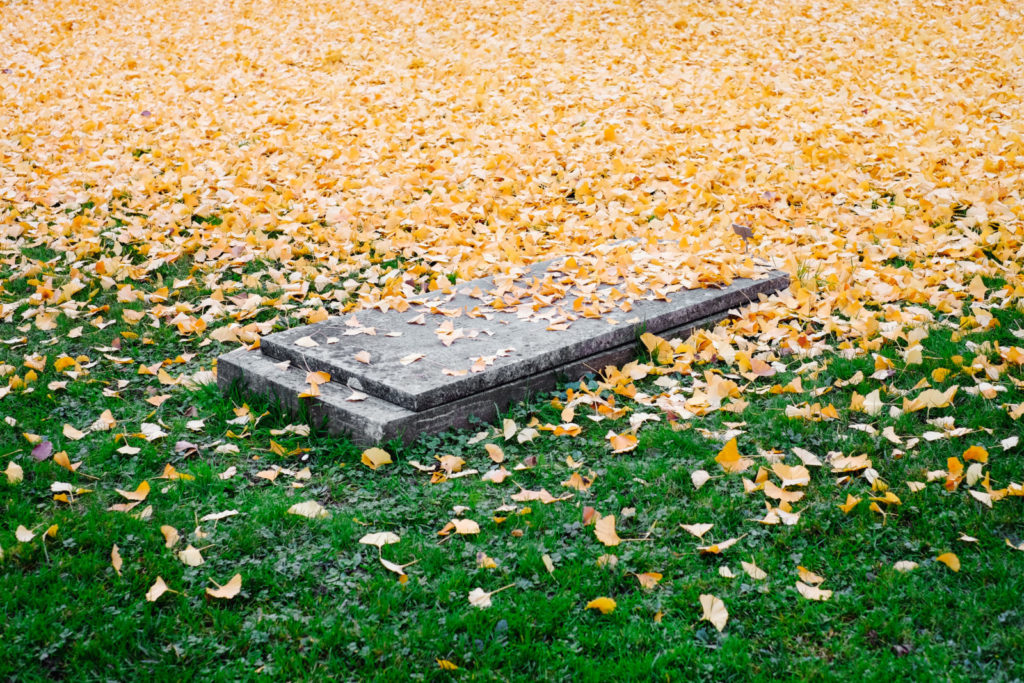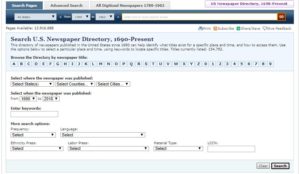Obituaries—A Family History Goldmine
 19
19Oct
Death Notice of 5th victim of the Boston Massacre, 1770
At one point or another we have all opened the Sunday paper and found ourselves glancing through the obituary section. Perhaps we were looking for an acquaintance, friend or family member. Or out of simple curiosity we found ourselves reading the unique life details of a complete stranger. Regardless of the reason, this article challenges you to take another look at obituaries, this time under the inquisitive eyes of a genealogist.
What is an Obituary
An obituary is a brief tribute to the recently deceased. Such a tribute aims to paint a portrait of one’s life that is both poignant and informational. Some can even be downright hilarious. Though most importantly for the genealogist they contain vital details about one’s life. “Obituaries often provide important clues or direct information. A good obituary can save hours of research and frustration by providing information such as the deceased’s date and place of birth, date and place of marriage, other lifetime residences, military service, employment, civic activities, and religious affiliation.”[1] In addition, an obituary may include the deceased’s full name, lifetime accomplishments, cause of death and immediate family members. It is not uncommon to see an obituary lists two or more generations in a family. They also tend to be fairly accurate since a close relative commonly writes the tribute.
Locating an Obituary
To begin searching for an obituary you will need the name of the person. An approximate place and date of death is also extremely helpful and will warrant a higher probability of success. Even an educated guess is better than nothing! For those that have died after 1962, Family Search’s United States Social Security Death Index is a great resource to glean details about a deceased family member. Identifying their name in the index will provide you with a death date and last place of residence that was on file with the Social Security Administration.
Searching local newspapers of the deceased’s place of residence upon their death is the most likely place for an obituary to be published. It is also not uncommon for the deceased’s hometown newspapers to print their obituary, especially if they and/or their family was known in the community. If the local paper you have identified has not been digitized (see online resources below), reaching out to local libraries, historical societies and state universities to inquire about a microfilmed copy of the newspaper is another research approach. Typically, these entities are very resourceful and eager to share what they have in their collections. Also, the Library of Congress website hosts the U.S. Newspaper Directory, 1690-Present database, which will help you learn what newspapers existed and survive for your area of interest.

Online Resources
One of the best advances in family history research during the 21st Century is the digitization of records. Novice family historians and professional genealogists can now search many of these records from their home computer. Obituaries are no exception. Three fabulous online resources to begin an obituary search are:
GenealogyBank.com. This repository has the largest obituary archive available online, from 1690 to the present. Their archives contain approximately 250 million newspaper obituaries and death notices from over 7,000 newspapers. These obituaries can be searched by state, city and/or title.
Newspaperarchive.com. This online archive has over 5.6 billion names in its database and over 108 million newspaper obituaries. On average newspaperarchive.com is digitizing one newspaper page every second, with each digitized newspaper being fully searchable by date and/or keyword.
Newspapers.com. This website boasts the largest online newspaper archive with over 9,100 newspapers from the 1700s – 2000s. With millions of pages added every month, one can search this database by place and/or date.
Identifying an obituary for an ancestor will likely provide you with previously unknown family details. Besides gleaning important names and dates from an obituary, you may discover unique character traits and significant events that had a profound impact on their life. A few hours spent searching online databases and/or local archives could lead to a goldmine for your family history research. And may we all be as lucky as the man whose obituary said he died from too many birthdays!
[1] Loretto D. Szucs, Sandra H. Luebking. Eds., The Source: A Guidebook to American Genealogy (Salt Lake City, Utah: Ancestry Incorporated, 1997), 634.
Cara
